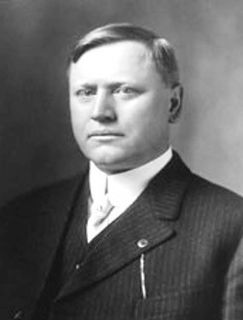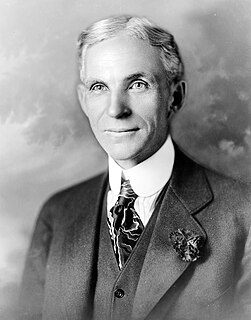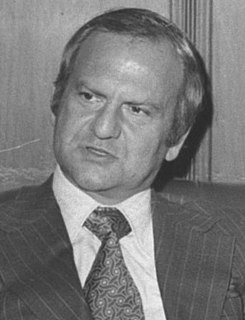 W
WAmerican Icon: Alan Mulally and the Fight to Save Ford Motor Company is a book written by Bryce G. Hoffman about the turnaround of Ford Motor Company under the leadership of CEO Alan Mulally. The book offers a brief history of the automaker and explores the problems that pushed it to the brink of bankruptcy in 2006, and then chronicles Mulally's transformation of the company's culture, products, and perception in the marketplace. Ford was the only American automakers to avoid both bankruptcy and a government bailout during the automotive industry crisis of 2008–2010. American Icon examines how Ford was able to fix its internal issues without government intervention.
 W
WStephen Edward Biegun is an American businessman and diplomat who served as the United States deputy secretary of state from December 2019 to January 2021 and United States Special Representative for North Korea from August 2018 to January 2021, vice president of international governmental affairs for the Ford Motor Company, staffer on the National Security Council, as well as national security adviser to Senator Bill Frist.
 W
WDanny Ray Brouillette is an American government official and businessman who served as the United States Secretary of Energy from 2019 to 2021. He previously served as the Deputy Secretary of Energy from August 2017 to December 2019.
 W
WJohn Stephen Bugas, known as Jack Bugas, was the second in command at Ford Motor Company during the presidency and chairmanship reign of Henry Ford II. He is best known for wresting control of the company from Harry Bennett—including drawing pistols on each other—following the death of Edsel Ford.
 W
WJames J. Couzens was an American businessman, politician and philanthropist. He served as mayor of Detroit (1919–1922) and U.S. Senator from Michigan (1922–1936). Prior to entering politics he served as vice president and general manager of the Ford Motor Company.
 W
WSir Leonard Crossland was an English automobile executive who filled a succession of increasingly high level appointments with Ford of Britain, culminating with the chairmanship which he held between 1968 and 1972.
 W
WJohn Francis Dodge was an American automobile manufacturing pioneer and co-founder of Dodge Brothers Company.
 W
WMark Fields is an American businessman and former chief executive officer of Ford Motor Company. Prior to his July 1, 2014, appointment, Fields served as the company's chief operating officer. Previously, as Ford's president of The Americas, Fields developed "The Way Forward" plan and separately led a significant turnaround of Mazda. He succeeded Alan Mulally as Ford's president and CEO. Fields announced his retirement on May 22, 2017. He currently serves as Senior Advisor at TPG Capital and on several corporate boards.
 W
WWalter Emmett Flanders was an American industrialist in the machine tool and automotive industries and was an early mass production expert.
 W
WEdsel Bryant Ford was an American business executive and philanthropist who was the son of pioneering industrialist Henry Ford and his wife, Clara Jane Bryant Ford. He was the president of Ford Motor Company from 1919 until his death in 1943.
 W
WElena Anne Ford-Niarchos is an American-Greek businesswoman. She is the Chief Customer Experience Officer at Ford Motor Company and the first female Ford family member to hold an executive position at the company.
 W
WHenry Ford was an American industrialist, business magnate, and founder of the Ford Motor Company, and chief developer of the assembly line technique of mass production. By creating the first automobile that middle-class Americans could afford, he converted the automobile from an expensive curiosity into an accessible conveyance that profoundly impacted the landscape of the 20th century.
 W
WHenry Ford II, sometimes known as "HF2" or "Hank the Deuce", was an American businessman in the automotive industry. He was the eldest son of Edsel Ford I and eldest grandson of Henry Ford I. He was president of the Ford Motor Company from 1945 to 1960, chief executive officer (CEO) from 1945 to 1979, and chairman of the board of directors from 1960 to 1980. Under the leadership of Henry Ford II, Ford Motor Company became a publicly traded corporation in 1956. From 1943 to 1950, he also served as president of the Ford Foundation.
 W
WWilliam Clay "Bill" Ford Jr. is an American businessman, serving as executive chairman of Ford Motor Company. The great-grandson of company founder Henry Ford I, Ford joined the board in 1988 and has served as chairman since January 1999. Ford also served as the president, CEO, and COO until turning over those roles to former Boeing executive Alan Mulally in September 2006. Ford is also the vice chairman of the Detroit Lions NFL franchise. Ford serves as a chairman of the United States-Mexico Chamber of Commerce. He holds a B.A. degree from Princeton University and a M.S. degree from MIT.
 W
WWilliam Clay Ford Sr. was an American businessman. He served on the boards of Ford Motor Company and the Edison Institute. Ford owned the Detroit Lions National Football League (NFL) franchise. He was the youngest child of Edsel Ford and was the last surviving grandchild of Henry Ford.
 W
WJohn Simpson Gray was a candymaker, business man, and banker from Detroit. He was also an original investor in the Ford Motor Company.
 W
WEugene Turenne Gregorie was an American yacht designer and automobile designer. Gregorie and Edsel Ford worked closely together to design many automobiles of the 1930s and 1940s. Although he was a high school dropout he became the head of Ford's automobile design department. He returned to yacht design after retirement.
 W
WJames Patrick Hackett is an American businessman. He was the president and chief executive officer of Ford Motor Company from May 2017 to October 2020.
 W
WLido Anthony "Lee" Iacocca was an American automobile executive best known for the development of the Ford Mustang and Ford Pinto cars while at the Ford Motor Company in the 1960s, and for reviving the Chrysler Corporation as its CEO during the 1980s. He was president and CEO of Chrysler from 1978 and chairman from 1979, until his retirement at the end of 1992. He was one of the few executives to preside over the operations of two of the Big Three automakers.
 W
WWilliam Signius Knudsen was a leading Danish-American automotive industry executive and an American general during World War II. His experience and success as a key senior manager in the operations sides of Ford Motor Company and then General Motors led the Franklin Roosevelt administration to commission him directly as a lieutenant general in the US Army to help lead the United States' war materiel production efforts for World War II.
 W
WFrançois Lehideux was a French industrialist and member of the Vichy government.
 W
WRobert Anthony Lutz is a Swiss American automotive executive. He served as a top leader of all of the United States Big Three, having been in succession executive vice president of Ford Motor Company, president and then vice chairman of Chrysler Corporation, and vice chairman of General Motors.
 W
WRobert Strange McNamara was an American business executive and the eighth United States Secretary of Defense, serving from 1961 to 1968 under Presidents John F. Kennedy and Lyndon B. Johnson. He played a major role in escalating the United States' involvement in the Vietnam War. McNamara was responsible for the institution of systems analysis in public policy, which developed into the discipline known today as policy analysis.
 W
WAlan Roger Mulally is an American aerospace engineer and manufacturing executive.
 W
WWilliam Arthur Niskanen was an American economist. He was one of the architects of President Ronald Reagan's economic program and contributed to public choice theory. He was also a long-time chairman of the Cato Institute, a libertarian think-tank.
 W
WStephen Terence Odell is a former automotive executive who spent all of his career with the Ford Motor Company, and its various subsidiaries: Jaguar, Mazda, and Volvo Car Corporation. His last role at Ford Motor Company was Executive Vice President of Global Marketing, Sales and Service.
 W
WDonald Eugene Petersen is an American businessman who was employed by the Ford Motor Company for 40 years, most notably as its chief executive officer from 1985 to 1990.
 W
WMarvin Travis Runyon was an American business executive and civil servant. He had a long career as a manufacturing executive at Ford Motor Company until his retirement, then joined Nissan as head of North American operations. He later served as chairman of the Tennessee Valley Authority (TVA) and as U.S. Postmaster General. He was a forceful and charismatic figure who picked up the nicknames "Marvelous Marv" and "Carvin' Marvin".
 W
WWilliam Bushnell Stout was a pioneering American inventor, engineer, developer and designer whose works in the automotive and aviation fields were groundbreaking. Known by the nickname "Bill", Stout designed an aircraft that eventually became the Ford Trimotor and was an executive at the Ford Motor Company.
 W
WAlexander James Trotman, Baron Trotman was an English-born businessman who served as the CEO of Ford Motor Company from 1993 to 1998. Trotman was the first foreign-born chairman and CEO of a Big Three American automobile manufacturer.
 W
WThe Whiz Kids were a group of ten United States Army Air Forces veterans of World War II who became Ford Motor Company executives in 1946.